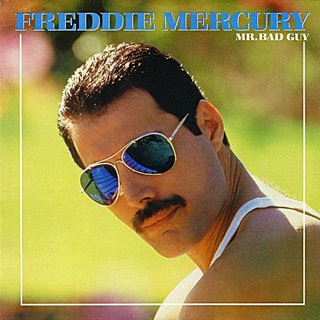Freddie Mercury karijera 4.deo

As a young boy in India, Mercury received formal piano training up to the age of nine. Later on, while living in London, he learned guitar. Much of the music he liked was guitar-oriented: his favourite artists at the time were The Who, the Beatles, Jimi Hendrix, David Bowie and Led Zeppelin. He was often self-deprecating about his own skills on both instruments and from the early 1980s onwards began extensively using guest keyboardists for both Queen and his solo career. Most notably, he enlisted Fred Mandel (an American musician who also worked for Pink Floyd, Elton John, and Supertramp) for his first solo project, and from 1985 onwards collaborated extensively with Mike Moran, leaving most of the keyboard work exclusively to him.
Mercury played the piano in many of Queen's most popular songs, including "Killer Queen", "Bohemian Rhapsody", "Good Old Fashioned Lover Boy", "We Are the Champions", "Somebody To Love" and "Don't Stop Me Now". He used concert grand pianos and, occasionally, other keyboard instruments such as the harpsichord. From 1980 onwards, he also made extensive use of synthesisers in the studio. Queen guitarist Brian May claims that Mercury was unimpressed with his own abilities at the piano and used the instrument less over time because he wanted to walk around onstage and entertain the audience. Although he wrote many lines for guitar, Mercury possessed only rudimentary skills on the instrument. Songs like "Ogre Battle" and "Crazy Little Thing Called Love" were composed on guitar; the latter famously featured Mercury playing acoustic guitar both on stage and in the studio.




